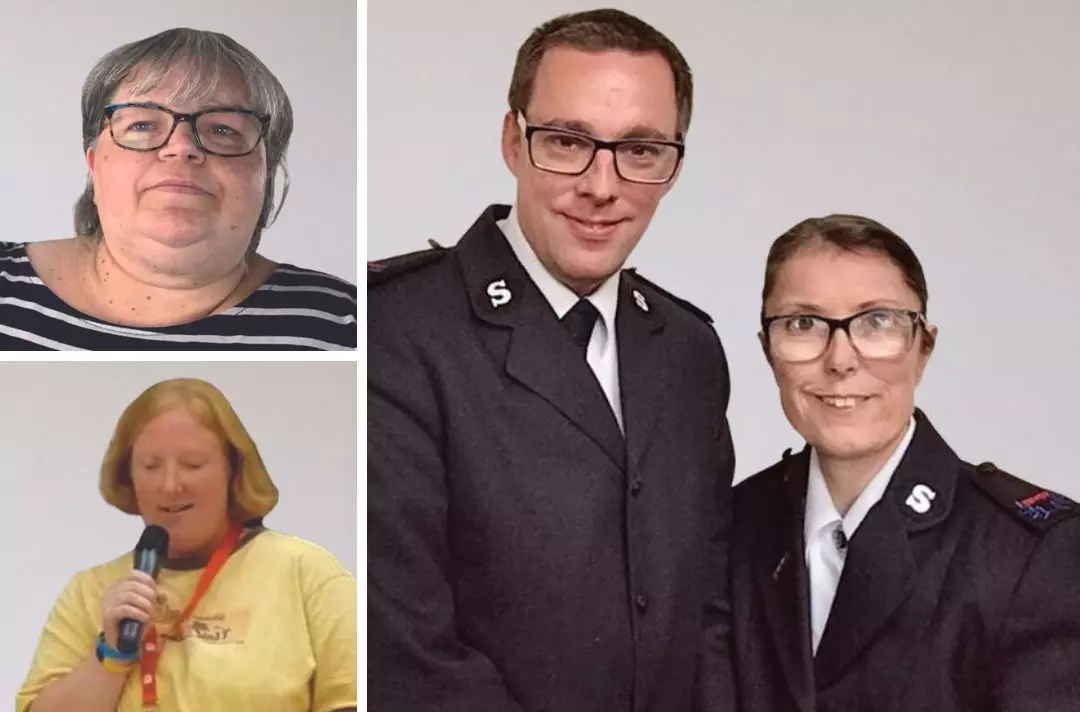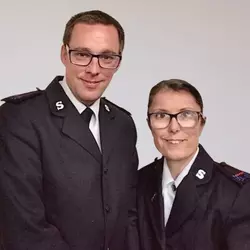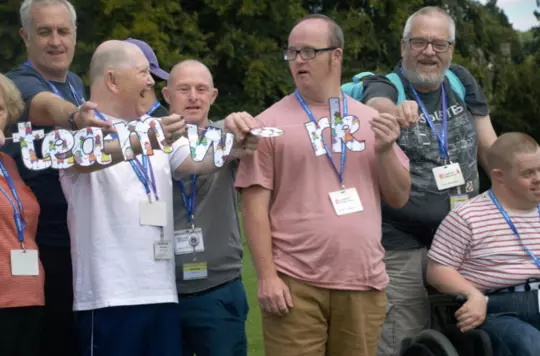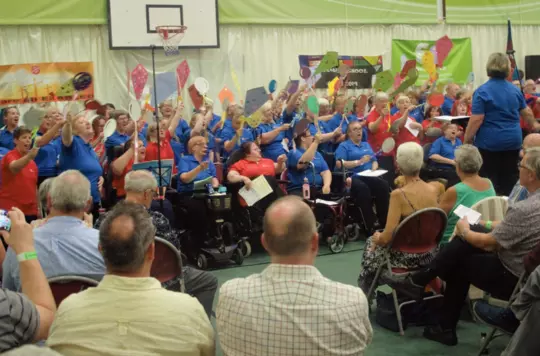15 November 2022
Have an accessible Christmas: Enabled members share tips
Lyn Woods and Enabled

Lyn Woods catches up with Enabled members to find out how Christmas celebrations and activities can be inclusive for everyone.
Many people look forward to Christmas as a time to celebrate the birth of Jesus Christ with a spirit of togetherness. But it can also be a difficult and lonely time for some, especially for people who live alone or have a disability. It is therefore crucial that Salvation Army practices and activities are accessible and welcoming to everyone.
To help corps and centres achieve this, Enabled members share suggestions of ways that Christmas celebrations can be made as inclusive as possible.
For more tips around how to make your present appeal more accessible, download the Be a Star Christmas toolkit from the Christmas Present Appeal webpage.

Joy Pocock
Wakefield
There are many ways to ensure that everyone feels welcomed and included.
- Look out for people who live on their own and those with disabilities.
Ask people how they plan to spend Christmas and, if there are corps activities, offer them a lift if you have a car and space. Go out of your way if you can. Many people don’t have transport to go to worship on Christmas Day because buses are not running.
- Show interest in others all year around, not just at Christmas.
People can be overly cautious in getting to know others. Take time to engage with members of your fellowship. Extend a helping hand. It can often be very difficult for people to ask for help.
- Make activities integrated not segregated.
Church is meant to be a family with everyone joining together so that there is no feeling of ‘these are for people with disabilities’ or ‘those who do not have families’. Being integrated means making everyone feel loved and included, and not out of sympathy.
- Help everyone feel part of the family.
Corps could arrange for people who will be alone to have dinner together and, if possible, book a table for Christmas meals at a restaurant and help people meet the costs.
- Give people responsibilities and find opportunities for them to be fully included.
So much can be done to make people with disabilities feel included, not just by helping them, but by empowering them to be active participants and contributors.

Diane Gorman
Swindon Gorse Hill
I have a learning disability and have been helping with Sunday school activities. At Christmas our corps hosts Christmas meals and carols. I have helped the children with the Nativity play for a couple of years now and really enjoy it.
We have a very inclusive and supportive team, and we learn songs and practise the actions together. There are two of us with learning disabilities and when we need a break to rest, the team are very understanding.
- Respect our views and support our participation so that we feel valued, and our disability is not seen as a problem.
If you ask people, most will tell you what they like or need.
- Invite and include everyone.
Not just those with a disability. If I want to volunteer and help, support me to do that and give me tasks that I can do.
- Consider visual challenges.
Provide programmes and songs in large fonts or in braille. My disability affects my eyesight. Sometimes when PowerPoint presentations are used, I struggle to see them because of the font sizes.

Divisional Envoys Tristan and Mandy Lanceley
South London
We are lifelong Salvationists and we both live with a disability. Our corps is extremely inclusive, supportive and encouraging in all our endeavours, including our ministry.
- Offer a warm welcome and be accessible.
It’s important that seats can be removed to accommodate wheelchair users and to have members on hand to help people find seats and facilities. Provide a ramp or level access to main entrance doors and halls and accessible toilets.
- Consider audible challenges.
Installing a hearing loop system, adjusting volume levels or having someone to sign for those with hearing difficulties are just some of the options that you could consider.
- Help in other ways.
A person may not be able to sort toys or food for parcels, but could they make refreshments, wrap gifts or write labels? Just providing them with a chair to sit on so that they don’t need to stand all the time and are able to rest every now and then can make a big difference.
- Provide open doors, hearts and arms to welcome people and make everyone feel worthwhile and wanted.
Joining with others at Christmas can bring great comfort to people and help them not to feel isolated or lonely. When we find that inclusiveness and we succeed at something, however small, it really helps with our mental health and wellbeing and increases our confidence, which helps us in other areas of our lives.
Feature prepared by

Lyn Woods
Editorial Assistant
Discover more

The Salvation Army's International Positional Statement on Persons With Disabilities.


